Judi Lynn
Judi Lynn's JournalCIA archives capture Richard Nixon's failed 1958 "goodwill" trip to Latin America
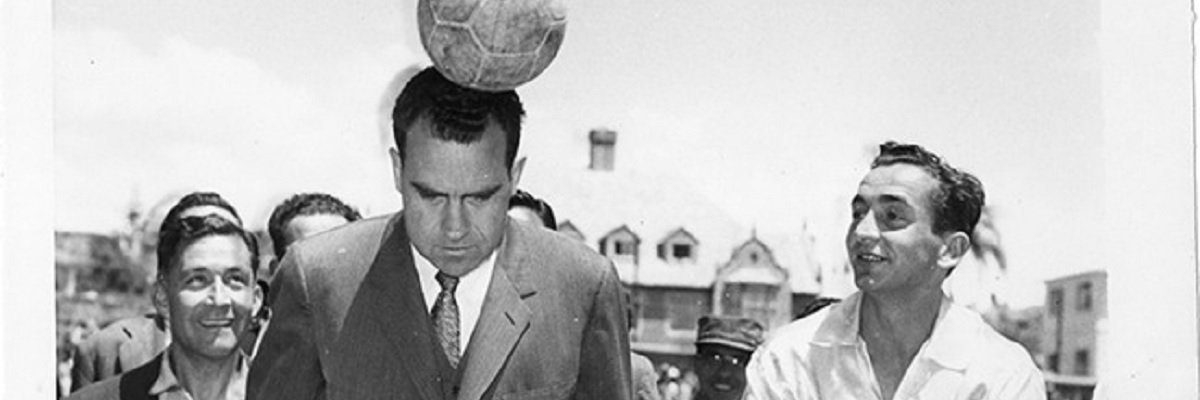
February 27, 2019
Congress criticized the Agency for not warning the then-vice president about angry mobs, proper soccer techniques
Written by Carolyn Komatsoulis
Edited by JPat Brown
In 1958, then-Vice President Richard Nixon didn’t quite understand soccer.
While in Quito, Ecuador during one stop on his Spring 1958 South American tour, Nixon was offered the chance to literally “kick off” a ceremonial soccer match. However, as the story goes, Nixon wasn’t really in the mood for kicking, so he decided to use his head instead. The only problem was he used the top of his head and not his forehead, gracing humanity with this photograph:
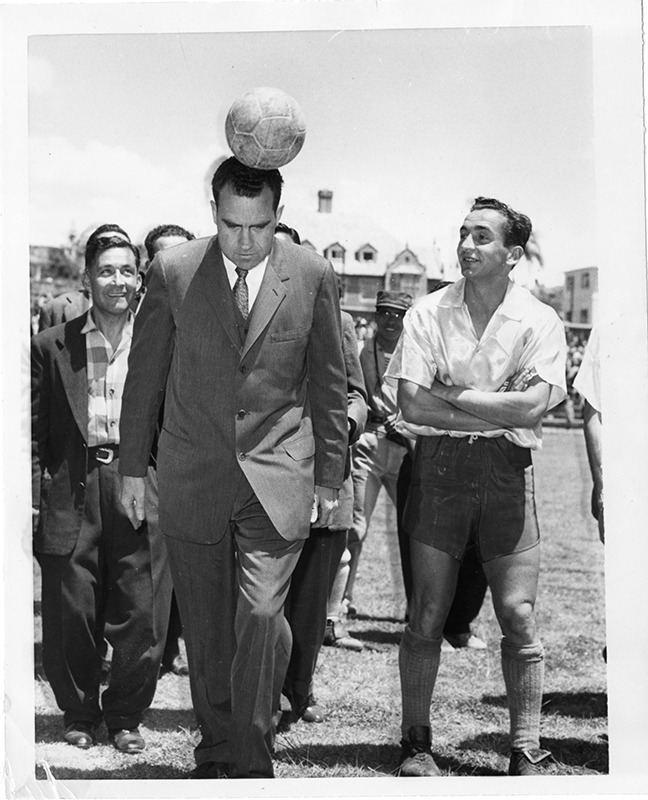
Soccer balls were heavier in 1958, and Nixon’s noggin (and pride) and were both slightly bruised, though Nixon’s time in Quito would be remembered as the best part of his trip. Although the Deputy Under Secretary of State Robert D. Murphy described that the trip was intended to “promote better understanding and good will between this country and our southern neighbor,” Murphy later testified before Congress that Nixon was not well-received.

The “indignities” included riots and protesters attacking the car Nixon was traveling in. In Peru, the New York Times reported on a “screaming, rock-hurling, communist-led mob”
More:
https://www.muckrock.com/news/archives/2019/feb/27/cia-nixon-soccer/
America's role in Latin American regime change
Washington has a long history of intervention in the region
Hasan Esen
|
28.02.2019
The Trump administration’s threat of military intervention in Venezuela is only the latest chapter in Washington’s long history of coups in Latin America dating back to 1898.
The U.S. gave unlimited support to Venezuela’s opposition on Feb. 23, when the government of socialist President Nicolas Maduro refused to allow the entry of humanitarian aid.
President Donald Trump has repeatedly stated that sending troops to Venezuela is an option while Secretary of State Mike Pompeo said recently he was certain that Maduro's days are numbered.
In slightly less than 100 years, from 1898 to 1994, the U.S. intervened successfully to change governments in Latin America at least 41 times, or once every 28 months for an entire century, according to an article in the Harvard Review of Latin America by American Professor John H. Coatsworth titled ‘United States Interventions’.
More:
https://www.aa.com.tr/en/americas/america-s-role-in-latin-american-regime-change/1404970
Ming Dynasty Skeletons Reveal Secrets of Foot-Binding
By Megan Gannon, Live Science Contributor | February 25, 2019 06:56am ET
- click for image -
https://img.purch.com/h/1400/aHR0cDovL3d3dy5saXZlc2NpZW5jZS5jb20vaW1hZ2VzL2kvMDAwLzEwNC80NjMvb3JpZ2luYWwvY2hpbmEtZm9vdC1iaW5kaW5nLU5PLVJFVVNFLmpwZw==
A high caste lady's feet were bound to form the " lotus shape, " in China around 1900.
Credit: The Print Collector/Print Collector/Getty Images
Foot-binding was practiced for about 1,000 years in China. The memory of this practice is preserved in historical documents, shoes found in graves of the elite and the testimonies of a dwindling number of women with bound feet who survive today.
But only in recent years have archaeologists looked at skeletons with bound feet to learn more about the women who experienced this extreme form of body modification.
Elizabeth Berger, a postdoctoral fellow in Chinese studies at the University of Michigan, had been working on an archaeological excavation at the site of Yangguanzhai near Xi'an in China's Shaanxi Province. The archaeological team, led by Liping Yang of the Shaanxi Archaeological Academy, was primarily interested in a Neolithic village buried there; they unexpectedly found an overlaying cemetery from a much later era, the Ming Dynasty (1368-1644), and they salvaged the graves. [Gallery: Ancient Chinese Warriors Protect Secret Tomb]
"I was looking at the bones and I noticed that there was something very strange about the feet," Berger told Live Science. "My first thought was that it might be foot-binding, and I started to look into it and found that at that point there hadn't been many publications on what the bones of foot-bound feet actually look like, although there was a lot of research on the history of it."
More:
https://www.livescience.com/64849-foot-bound-skeletons-china.html
Felt it important to go look for images of bound feet in google images. I won't post any of them but you can look through what is available. I never would have guessed this could have happened to a lot of feet:
http://tinyurl.com/y5zn4y4a
From Wikipedia:
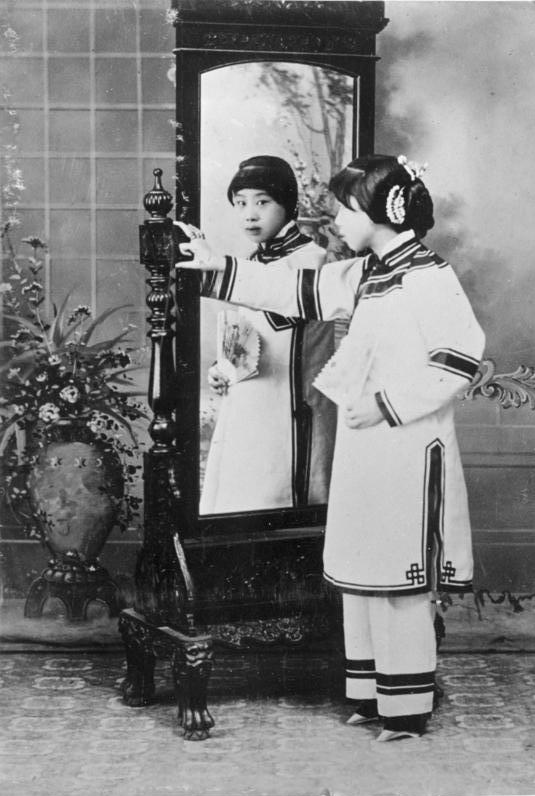
Small bound feet were once considered beautiful while large unbound feet
were judged crude

A lotus shoe for bound feet. The ideal length for a bound foot was 3 Chinese inches ( 寸 ) , which is around 4 inches (10 cm) in western measurement.
Foot binding was the custom of applying tight binding to the feet of young girls to modify the shape and size of their feet. It was practiced in China from the Tang dynasty until the early 20th century, and bound feet were considered a status symbol as well as a mark of beauty. Foot binding was a painful practice and significantly limited the mobility of women, resulting in lifelong disabilities for most of its subjects. Feet altered by binding were called lotus feet.
The practice possibly originated among upper class court dancers during the Five Dynasties and Ten Kingdoms period in 10th century China, then became popular among the elite during the Tang dynasty, eventually spreading to all social classes by the Qing dynasty. Foot binding was practised in different forms, and the more severe form of binding may have been developed in the 16th century. It has been estimated that by the 19th century, 40–50% of all Chinese women may have had bound feet, and up to almost 100% among upper-class Chinese women.[1] The prevalence and practice of foot binding however varied in different parts of the country.
More:
https://en.wikipedia.org/wiki/Foot_binding
On edit:
Is this the forerunner (or "fore-limper" ) of high heels? Actually going through contortions to look unlike yourself?
Australia has a genocidal history but we won't learn while it's dominated by white men
Lowanna Gibson
Sun 24 Feb 2019 19.05 EST Last modified on Sun 24 Feb 2019 22.37 EST
We need to decolonise history and archaeology if we want to know the truth
As a child I loved history. It was the catalyst to my dreams of being a super-cool archaeologist, like Indiana Jones. History is a beautiful thing because we learn about ourselves; why we do and think things in a certain way and hopefully, learn from our mistakes. However, the way in which history is taught is problematic, especially Australia’s Indigenous history. I would go as far to say, the way in which Indigenous history is taught and interpreted has and continues to have a significant impact on the truth.
For centuries the history of Indigenous people has been disproportionately constructed and construed by “white men”; historians, various commentators and politicians. For instance, articles have been published by white males of atrocities committed against first nations people but deny deliberate intention to commit genocide thus concluding genocide did not occur.
Genocide is often denied on the notions of “no intention” (to commit genocide) and no enacted policy. However, the definition of genocide is consistent with what occurred in Australia:
Any of the following acts committed with intent to destroy, in whole or in part, a national, ethnical, racial or religious group, as such: killing members of the group; causing serious bodily or mental harm to members of the group; deliberately inflicting on the group conditions of life calculated to bring about its physical destruction in whole or in part ; imposing measures intended to prevent births within the group; [and] forcibly transferring children of the group to another group.
More:
https://www.theguardian.com/commentisfree/2019/feb/25/australia-has-a-genocidal-history-but-we-wont-learn-while-its-dominated-by-white-men
Who burned the trucks with US supplies for Venezuela?
by Adriaan Alsema February 24, 2019
Colombia’s President Ivan Duque on Saturday blamed Venezuela’s border authorities of burning trucks with American aid, but this is not supported by evidence or witness accounts.
The trucks caught fire while the Venezuelan National Guard were firing teargas at the caravan and hooded men threw Molotov cocktails and rocks at the armed forces of the neighboring country.
The incineration of the trucks effectively blocked the bridge connecting the two countries and ended opposition leader Juan Guaido’s attempt to enter food supplies and medicine into his native country.
The blame game about the incident began almost immediately after the violence erupted that according to Colombia’s foreign ministry left at least 285 people injured, most because of tear gas.
In a press conference, Guaido went as far as accusing his country’s security forces loyal to authoritarian President Nicolas Maduro of having committed a crime against humanity.
More:
https://colombiareports.com/who-burned-the-trucks-with-us-supplies-for-venezuela/
Venezuela Coverage Takes Us Back to Golden Age of Lying About Latin America
FEBRUARY 22, 2019
Venezuela Coverage Takes Us Back to Golden Age of Lying About Latin America
MARK COOK

Venezuelan pharmacy at a time when Time (5/19/16) was telling readers, “Basic medicines
like aspirin are nowhere to be found” in Venezuela.
I was sitting in my apartment in Caracas, Venezuela, reading the online edition of Time magazine (5/19/16), which carried a report that there was not even something as basic as aspirin to be found anywhere in Venezuela: “Basic medicines like aspirin are nowhere to be found.”
I walked out of the apartment to the nearest pharmacy, four blocks away, where I found plenty of aspirin, as well as acetaminophen (generic Tylenol) and ibuprofen (generic Advil), in a well-stocked pharmacy with a knowledgeable professional staff that would be the envy of any US drugstore.
A few days after the Time story, CNBC (6/22/16) carried a claim that there was no acetaminophen to be found anywhere, either: “Basic things like Tylenol aren’t even available.” That must have taken the Pfizer Corporation by surprise, since it was their Venezuelan subsidiary, Pfizer Venezuela SA, which produced the acetaminophen I purchased. (Neither Time writer Ian Bremer nor CNBC commentator Richard Washington was in Venezuela, and there was no evidence offered that either of them had ever been there.)
I purchased all three products, plus cough syrup and other over-the-counter medications, because I doubted that anyone in the United States would believe me if I couldn’t produce the medications in their packages.
More:
https://fair.org/home/venezuela-coverage-takes-us-back-to-golden-age-of-lying-about-latin-america/
Why Venezuela's Chavistas are fiercely loyal to Maduro, despite economic crisis
Feb 22, 2019 6:40 PM EST
Violence has broken out in Venezuela as opposition groups, led by Juan Guaido, attempt to bring in foreign aid against the will of President Nicolas Maduro. Despite international support for Guaido, a fiercely loyal minority of Venezuelans known as Chavistas are determined to keep Maduro in power -- and the U.S. out. Special correspondent Nadja Drost and videographer Bruno Federico report.
Judy Woodruff:
As we reported, there was violence on the Venezuela-Brazil border today, as opposition groups try to bring aid into Venezuela.
There is also a confrontation brewing on Venezuela's western border with Colombia, where American-supplied aid is waiting to flow into Venezuela.
Juan Guaido, the opposition leader the U.S. recognizes as president of Venezuela, is hoping to push supplies across that border tomorrow. So far, that aid is being stopped by the government of President Nicolas Maduro, who still enjoys substantial support inside the country.
Tonight, with support of the Pulitzer Center, special correspondent Nadja Drost and videographer Bruno Federico take us to meet some of those still pledged to Maduro and to what they call the revolution, led by his predecessor, Hugo Chavez.
More:
https://www.pbs.org/newshour/show/why-venezuelas-chavistas-are-fiercely-loyal-to-maduro-despite-economic-crisis
JOHN PILGER: The War on Venezuela is Built on Lies
JOHN PILGER: The War on Venezuela is Built on Lies
February 22, 2019
The reporter as clown — for whom the truth is too difficult to report —may be the final stage of much of mainstream journalism’s degeneration, writes John Pilger for Consortium News.
By John Pilger
Special to Consortium News
Travelling with Hugo Chavez, I soon understood the threat of Venezuela. At a farming co-operative in Lara state, people waited patiently and with good humor in the heat. Jugs of water and melon juice were passed around. A guitar was played; a woman, Katarina, stood and sang with a husky contralto.
“What did her words say?” I asked.
“That we are proud,” was the reply.
The applause for her merged with the arrival of Chavez. Under one arm he carried a satchel bursting with books. He wore his big red shirt and greeted people by name, stopping to listen.
What struck me was his capacity to listen.
But now he read. For almost two hours he read into the microphone from the stack of books beside him: Orwell, Dickens, Tolstoy, Zola, Hemingway, Chomsky, Neruda: a page here, a line or two there. People clapped and whistled as he moved from author to author. Then farmers took the microphone and told him what they knew, and what they needed; one ancient face, carved it seemed from a nearby banyan, made a long, critical speech on the subject of irrigation; Chavez took notes.
More:
https://consortiumnews.com/2019/02/22/john-pilger-the-war-on-venezuela-is-built-on-lies/
Sydney nanny accused of role in Pinochet-era kidnappings
Adriana Rivas faced an extradition hearing over charges she helped kidnap seven people in Chile in the 70s
Associated Press
Wed 20 Feb 2019 01.23 EST
A woman who works as a part-time nanny in Sydney has appeared in court after being accused of kidnapping offences dating back to Chile’s Pinochet dictatorship.
Adriana Rivas faced an extradition hearing in Sydney on Wednesday over her alleged role in the 1976 killing of a Communist party leader who was held in a secret prison before he was suffocated and thrown into the ocean.
Australian attorney general Christian Porter, who has responsibility for extraditions, said the 66-year-old was arrested in Sydney on Tuesday at the request of Chile.
The country’s supreme court had requested the extradition of Rivas in 2014, based on charges that she kidnapped seven people in 1976 and 1977, including the Communist party leader. The alleged victims have never been found.
More:
https://www.theguardian.com/australia-news/2019/feb/20/sydney-nanny-accused-of-role-in-pinochet-era-kidnappings
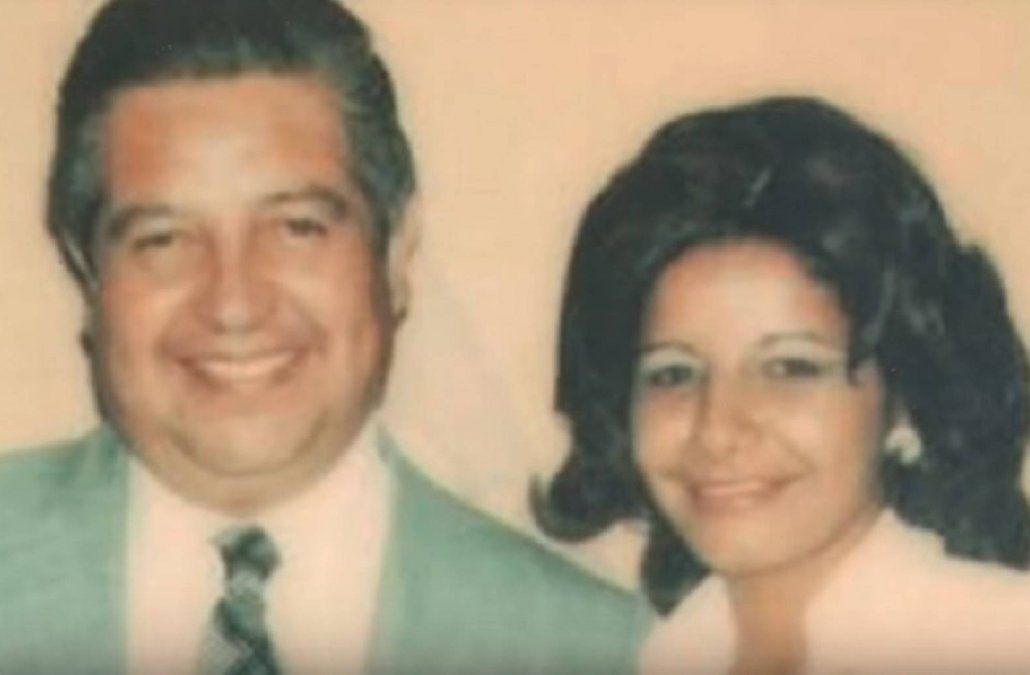
Adriana Rivas and her boss El Mamo Contreras, creator of the system of espionage to opponents during the Pinochet regime.
Google translation:
Australian ex-agent and torturer of the Pinochet dictatorship arrested in Australia
Adriana Rivas left Chile in 1978 and is accused of disappearances and human rights violations.
FEBRUARY 20, 2019 - 08:43
Australian authorities announced on Wednesday that they detained a nanny who has been in the country for more than three decades, after Chile requested her extradition on charges of kidnapping and torture during the Pinochet dictatorship.
Adriana Rivas, 66, was the secretary of the former head of the political police of the Pinochet dictatorship, the late Manuel "Mamo" Contreras, the bloodthirsty creator of the National Directorate of Intelligence during the 70s.
Detainees who survived the Chilean dictatorship have pointed out that Rivas was not only an administrative official: she was a secret agent and actively participated in the torture and disappearances of many opposition leaders and trade unionists, among them the secretary general of the Communist Party Víctor Díaz, disappeared in 1977 at 56 years old.
In 1978, the woman left Chile and settled in Australia. Since then he traveled many times to his native country.
In 2007, she was arrested at the airport in Santiago, at the request of the justice system, which understands human rights cases that occurred in the 1970s.
More:
https://www.subrayado.com.uy/detienen-australia-una-ex-agente-y-torturadora-la-dictadura-pinochet-n526956
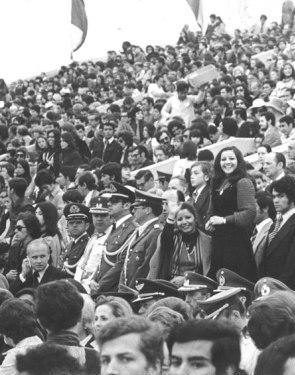
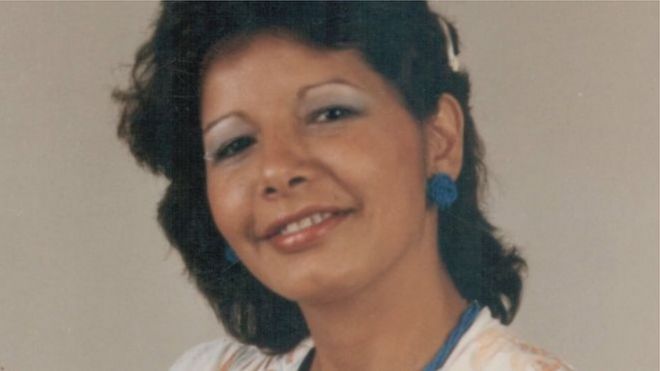
Adriana Rivas: Aide of Pinochet-era spy chief held in Australia
20 February 2019
Australian police have arrested a Chilean woman living in Sydney over her alleged involvement in a kidnapping during the military rule of Gen Augusto Pinochet in the South American country.
Adriana Rivas worked as a secretary for the infamous chief of Chile's secret police force, Manuel Contreras.
Contreras died in 2015 while serving a sentence of more than 500 years for human rights abuses.
Some 3,000 Pinochet opponents were killed during the 1970s and 1980s.
Chilean authorities accuse Ms Rivas of having participated in the kidnapping and disappearance of the secretary-general of the Communist Party, Víctor Díaz.
'Best days of my life'
Ms Rivas, who is now 66, worked for Manuel Contreras from 1973 to 1976 at the National Intelligence Directorate (Dina), the secret police force founded by Gen Pinochet to hunt down his political opponents.
More than 40,000 people were politically persecuted during the Pinochet era, which lasted from 1973 to 1990.
More:
https://www.bbc.com/news/world-latin-america-47303788
US Media Erase Years of Chavismo's Gains
FEBRUARY 20, 2019
GREGORY SHUPAK
Venezuela’s Bolivarian Revolution, which took off with the election of President Hugo Chávez in December 1998, frequently and even quite recently received praise for its social gains from the United Nations, international humanitarian organizations and economists. This aspect of the country’s story has been almost entirely written out of media coverage of the effort to overthrow the Venezuelan government by the US, Canada and their right-wing partners in Venezuela and the region.

Malnutrition in children under five was one of several social
indicators that improved dramatically in Venezuela following
the election of Hugo Chávez in 1999.
(Source: Instituto Nacional de Nutrición/CEPR)
Under Chávez, poverty in Venezuela was cut by more than a third, and extreme poverty by 57 percent (CEPR, 3/7/13). (These declines were even steeper if measured from the depths of the opposition-led oil strike, designed to force Chávez out by wrecking the economy.)
In June 2013, the UN’s Food and Agriculture Organization (FAO) included Venezuela in a group of 18 nations that that had cut their number of hungry people by half in the preceding 20 years, 14 of which were governed by Chavismo: The FAO said that Venezuela reduced the number of people suffering from malnutrition from 13.5 percent of the population in 1990–92 to less than 5 percent of the population in 2010–12; the FAO credited government-run supermarket networks and nutrition programs created by Chávez.
Three months later, the UN Committee on the Elimination of Racial Discrimination said that it “welcomes the social development measures, programs and plans that include indigenous peoples and people of African descent, which have helped to combat structural racial discrimination” in the country. The committee also noted that it
welcomes the progress made by the [Venezuelan government] in the area of education and its efforts to reduce illiteracy, as a result of which it was declared an “illiteracy-free territory” by the United Nations Educational, Scientific and Cultural Organization (UNESCO) in October 2005.
More:
https://fair.org/home/us-media-erase-years-of-chavismos-gains/
Profile Information
Member since: 2002Number of posts: 160,527